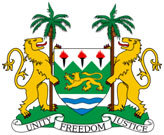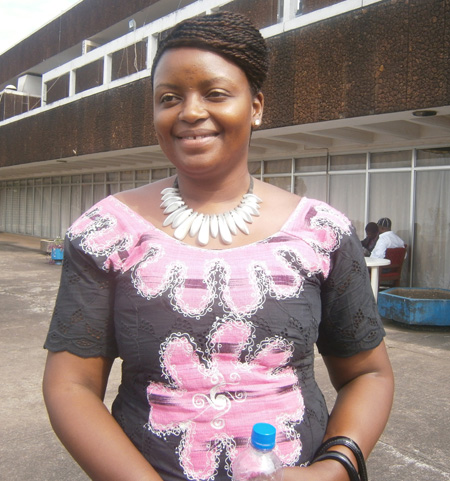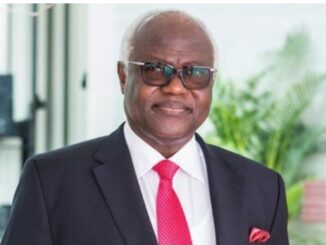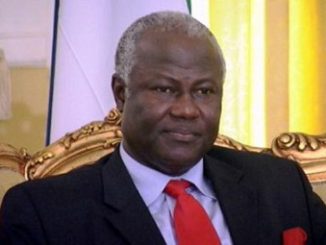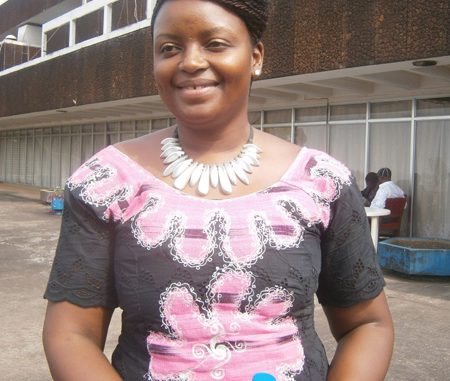
STATEMENT BY H.E. MS. ISATA KABIA
ACTING MINISTER OF SOCIAL WELFARE, GENDER AND CHILDREN’S AFFAIRS
OF THE REPUBLIC OF SIERRA LEONE AT THE
60TH SESSION OF THE COMMISSION ON THE STATUS OF WOMEN (CSW)
NEW YORK, 18TH MARCH 2016
Chair and Distinguished Delegates,
Permit me to extend my delegation’s wholehearted congratulations to you as Chair of this historic event: the 60th Session of the UN Commission on the Status of Women. Let me assure you of our cooperation and support throughout the deliberations and beyond.
My delegation wishes to align itself with the statements delivered by Thailand on behalf of the Group of 77 and China, and Tanzania on behalf of the African Group.
We welcome the convening of this meeting which we view as another opportunity to share with the rest of the world some of the major strides we have taken towards the attainment of gender equality goals and the empowerment of women, as well as our greatest challenges. In this regard, my delegation appreciates the theme – “Women’s Empowerment and its link to Sustainable Development”.
The delegation of Sierra Leone reaffirms that the effective implementation of the Beijing Platform for Action and other international agreements that promote women’s empowerment, and compliance with the Convention on the Elimination of All Forms of Discrimination Against Women, are prerequisites for sustainable development. If we are to ensure the successful implementation of Agenda 2030, we must sincerely uphold the principle, “leave no one behind”.
Chair,
Women form almost 52% of the total population of Sierra Leone which places more emphasis on the need for them to be fully involved in the decision making process of the country. Sustainable development will be difficult to achieve if this critical mass is marginalized. The Government of Sierra Leone therefore continues to address our nation’s gender parity challenges through the implementation of the Agenda for Prosperity. This poverty reduction strategy program (PRSP III (2013 – 2018) comprises 7 pillars which mainstream gender and has a pillar 8 as a stand-alone pillar on “Gender Equality and Women’s Empowerment”. This pillar focuses on four main areas including governance, education, violence against women and women’s economic empowerment and is designed to address issues related to the post 2015 Development agenda. Against this background, women are considered an integral part of the consultations, planning, development and implementation of the policies, projects and programmes.
I will summarize some of the concrete measures the Government of Sierra Leone has undertaken coupled with the challenges which still require our attention:
Concrete Measures Taken by Government at the Normative Level
Sierra Leone has signed and ratified the Convention on the Elimination of All Forms of Discrimination Against Women (CEDAW) without reservation and we are up-to-date in our reporting obligation.
We have completed the final evaluation of the National Action Plan on UN Security Council Resolution 1325 and 1820 (2010-2014) and we are now gearing up for the development of the next generation National Action Plan.
Sierra Leone has ratified the AU Protocol to the African Charter on Human and Peoples’ Rights on the Rights of Women in Africa (commonly known as the Maputo Protocol) in 2015.
Concrete Measures Taken by Government at the Operative Level
In view of the strides the Government of Sierra Leone is making regarding the legal and policy framework aimed at contributing to the empowerment of women.
The Government has enacted gender responsive legislations to protect and promote the rights and welfare of women and children.
Government continues to make steady progress in terms of representation and participation of women in key political decision making positions. Several appointments have been made in favour of women. Cabinet Ministers (Ministry of Foreign Affairs; Social Welfare, Gender and Children’s Affairs; Fisheries and Marine Resources; Political and Public Affairs; Lands, Country Planning and Environment), Female Ambassadors (Ghana, Senegal, Nigeria, Guinea), Deputy Ambassadors (Guinea, China, Gambia), Chairpersons of Parastatals, 20 percent of females as Local Councilors whilst one City Council has attained parity with a female Mayor and Deputy Mayor.
The Government also continues to make tremendous progress in terms of allocation of resources to the Ministry of Social Welfare, Gender and Children’s Affairs to support Gender and Women empowerment programmes.
Key Challenges
Critical contributions by women to the CRC (Constitution Review Committee) of the 1991 Constitution that is currently under review to ensure we have a Gender friendly Constitution that stands the test of time.
New concerns in the progress towards the attainment of Gender Equality and Women’s Empowerment fueled by the Ebola outbreak.
Chair,
As you may be aware, Sierra Leone has recovered from the disease, but not from its impact. Sixty percent of the Survivors are female, and there are 6,000 orphans as a result of Ebola. However, Government has demonstrated sustained political will and commitment in spite of the numerous challenges to ensure the full implementation of the 6-9 months post Ebola Recovery Plan. This plan will expire on 31st March 2016 and we are currently finalizing mechanisms for the next phase (10-24 months post Ebola Recovery Plan) which will commence on 1st April 2016.
In consonance with the recovery plan, the Ministry of Social welfare, Gender and Children’s Affairs has in partnership with the UN WOMEN and OXFAM GB developed a project document on women’s economic empowerment including water and sanitation hygiene (WASH) programme for Liberia and Sierra Leone.
Chair,
As a country, we will continue to strive for the equality of women especially in terms of policy development, legislation and their full implementation. We will continue to pursue gender parity in the political and socio-economic environment as enshrined in our national development plan.
I thank you for your attention.

